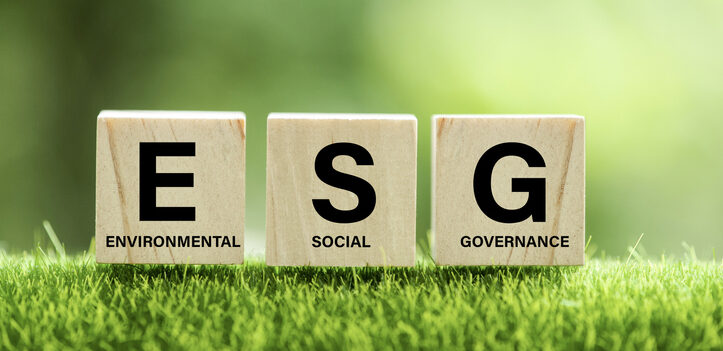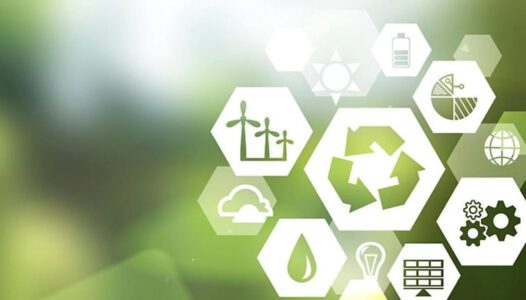by Lieve Lowet & Lorenz Van Roosbroeck
Having understood the social element of (un)sustainability, we tackle the second issue which advances the integrative understanding of the AAIEI over the disjointed logic present within ESG deliberations. In our March blog post, intergenerational equity was praised for its integrative element; it grasped environmental issues as a social issue. Instead, the dominant deliberative culture surrounding ESG tends to discuss environmental -and social issues in isolation of one another, which masks their interrelation. Here, the layered, relational aspect of sustainability is concealed, presenting it instead as an exercise in compliance. However, while it is practically important to respect the analytical distinction between society and nature, sustainability at large is only theoretically intelligible from the vantage point of their interrelation. Therefore, one has to open up the context of ESG, something which the AAIEI achieves.
Indeed, while it is broadly understood that ESG is about sustainability, sustainability itself is never simply about ESG. Then what is sustainability about? Of the many definitions of sustainability which exist, the Brundtland Commission in 1987 seems to capture its very essence in the notion of “development which meets the needs of the present without compromising the ability of future generations to meet their needs.” Here, sustainability is grasped in the relation between economic development and human needs, subjected to an intergenerational perspective. Thus, sustainability at large contains an environmental element, linked to (economic) development, but also a social element linked to the distribution of resources according to human need and to intergenerational justice. Accordingly, the AAIEI’s integrative concept of intergenerational equity appears to correspond to this definition insofar as it captures, amongst others, the intergenerational link between environment and society. This is important because it implicitly demonstrates an understanding of the relational core of sustainability, taken at large.
Further reflections: Beyond ESG?
If we inspect the aforementioned relational core of sustainability, one can view it as a balancing exercise between immediate human needs and the ability of future generations to meet theirs — one where difficult trade-offs have to be made. But who bears the largest costs of those trade-offs? Here an issue of social sustainability is very much present which transcends the intergenerational one. Can the present system deal with social contradictions in conjunction to socio-ecological ones? Or, will it only enlarge them up until the point of collapse or revolution?
While this appears bleak, it is no fiction to state that we’re facing potential ecological breakdown, critically endangering the ability to meet the needs of future humanity. Moreover, the scientific inability to predict ecology after certain tipping points would have been breached, adds to a sense of potential catastrophe.
But this merely underscores the need to understand both the successes and the failures of our current system. Despite rampant social inequality, the stability and welfare it has brought about for large parts of the world have been unparalleled in history. Yet, taken at face value, these successes clearly stem from unsustainable economic growth, thus bringing about a legitimate sense of crisis in the present. Could it be said that the apparent social stability masks an unfolding contradiction between irrational, unsustainable economic development — paired to an increasingly unstable climate — and rational, sustainable economic development within ecological bounds?
Moreover, considering the previous reflection upon social sustainability, what ideology would conceal this tension? One of the challenges is that, from the intergenerational point of view, the young often lack insight and power, while the future generations are largely unborn; they can’t dissent to force real change. Hence, who will be the agent of change? Of course, as economic pressures will mount, the sources of change are as ubiquitous as the sources of social inequality. In relation to the climate, global North-South relations must be at the center.
In this light, one wonders whether the current system — aimed for economic development by keeping costs low in order to maximise profit — can ever become a sustainable one? The question bears asking: is ESG a step in the right direction, or, is it a temporary distraction?
Conclusion
In the last decades, many discussions around sustainability focus on this very question: can a system precedented upon unlimited economic growth, on an earth with finite resources and other ecological limits, ever be sustainable?
Interestingly enough, ESG itself only makes sense from the judgement that the free market is, wholly unto itself, unsustainable, and must be reigned in according to other principles. Might the right measures make our markets more fair and sustainable? Of course, since the industrial revolution, ESG is but the last in a historical line of regulations which sets limits upon the free development of the capitalist market. Yet if capitalism promotes unsustainable growth, to be reigned in after crises occur, then why haven’t we found a novel economic system yet that develops more sustainably? Or do we have to resign ourselves to the fact that capitalism, while far from perfect, is the best we have? Indeed, communism has been tried to no avail; many have been disillusioned by its totalitarian outcomes. But in these challenging times, we might still draw inspiration from Marx’ critique of capitalism. Namely, Marx was in many ways visionary because he dedicated his life to the study of contradictions within capitalism, and from this, formulated a concept of an alternative society whose purpose would overcome the prevailing historical contradictions.
Unfortunately, one of the uncovered contradictions has been lost in time, yet in the last decades it has been rediscovered (see John Bellamy Foster : Marx’ Theory of Metabolic Rift, Foundations for environmental sociology, 1999). So, besides identifying the contradictions, it appears that Marx formulated a critique of capitalism from the purview of sustainability:
“From the standpoint of a higher socio-economic formation, the private property of particular individuals in the earth will appear just as absurd as the private property of one man in other men. Even an entire society, a nation, or all simultaneously existing societies taken together, are not owners of the earth. They are simply its possessors, its beneficiaries, and have to bequeath it in an improved state to succeeding generations as boni patres familias [good heads of the household].”
This passage from Capital captures the contradiction between a free-market system based on private property and a sustainable course of development, in terms of their distinct underlying principles.
From this, the idea of a “higher socio-economic formation” had to be based on overcoming the contradiction between the free development of private property, — to be used for personal profit, subject to laws of supply and demand — and rational, sustainable development. Can we read ESG part of this historical movement?
This blog was co-created with Lorenz Van Roosbroeck, master student in philosophy at KULeuven, who is currently writing his thesis on Marx and ecology, i.c. the debate between J.B. Foster and J.W. Moore.





